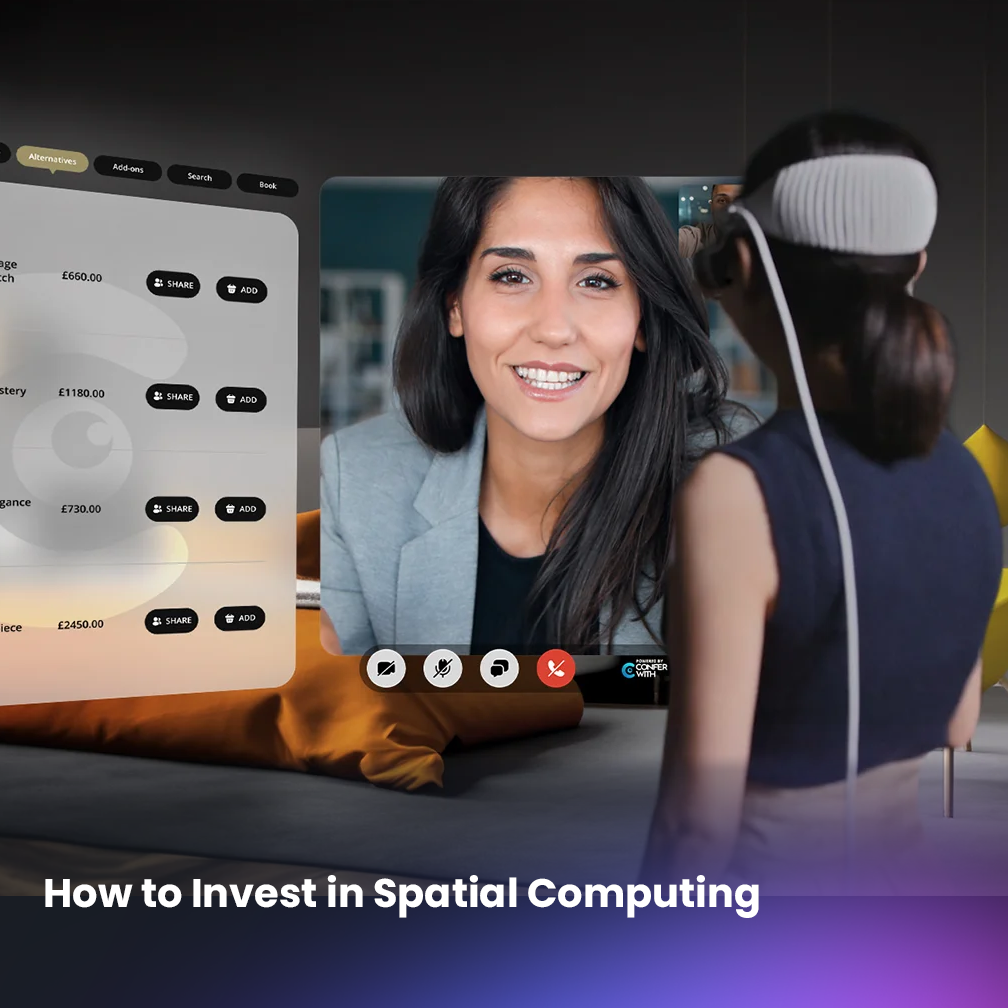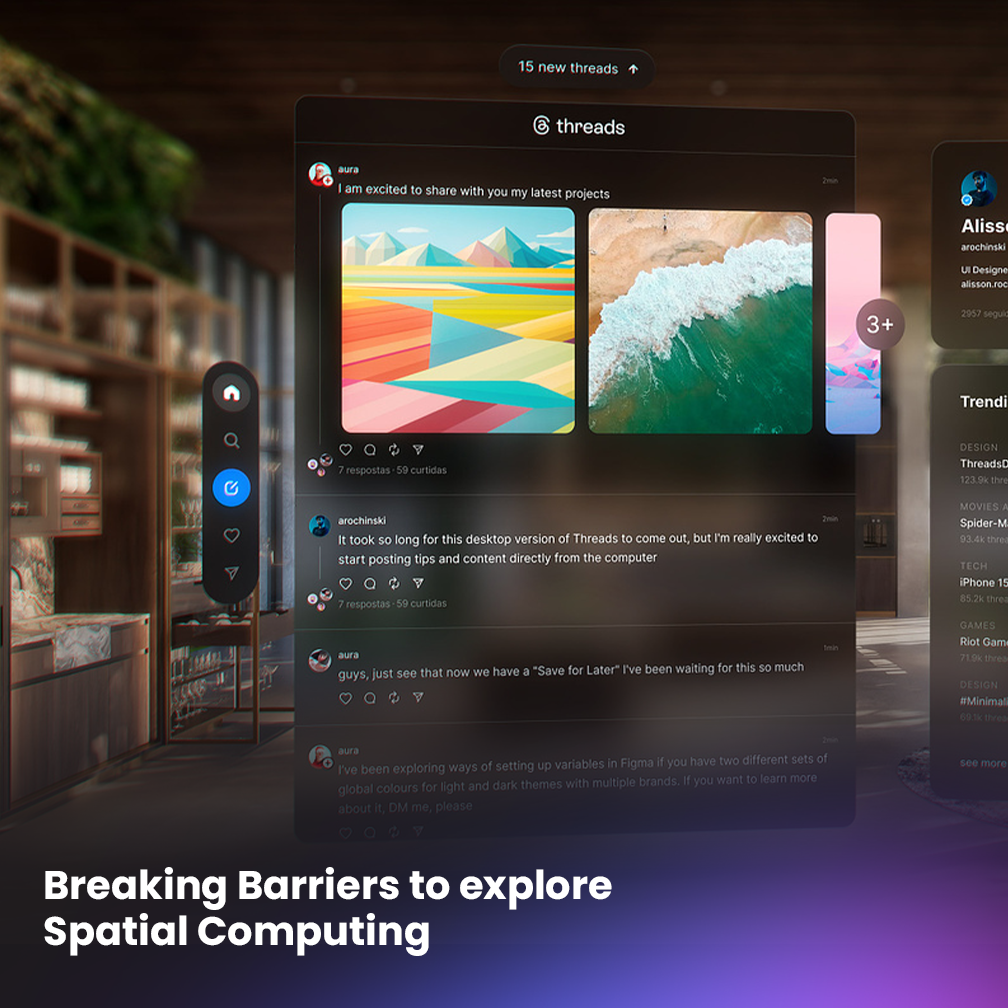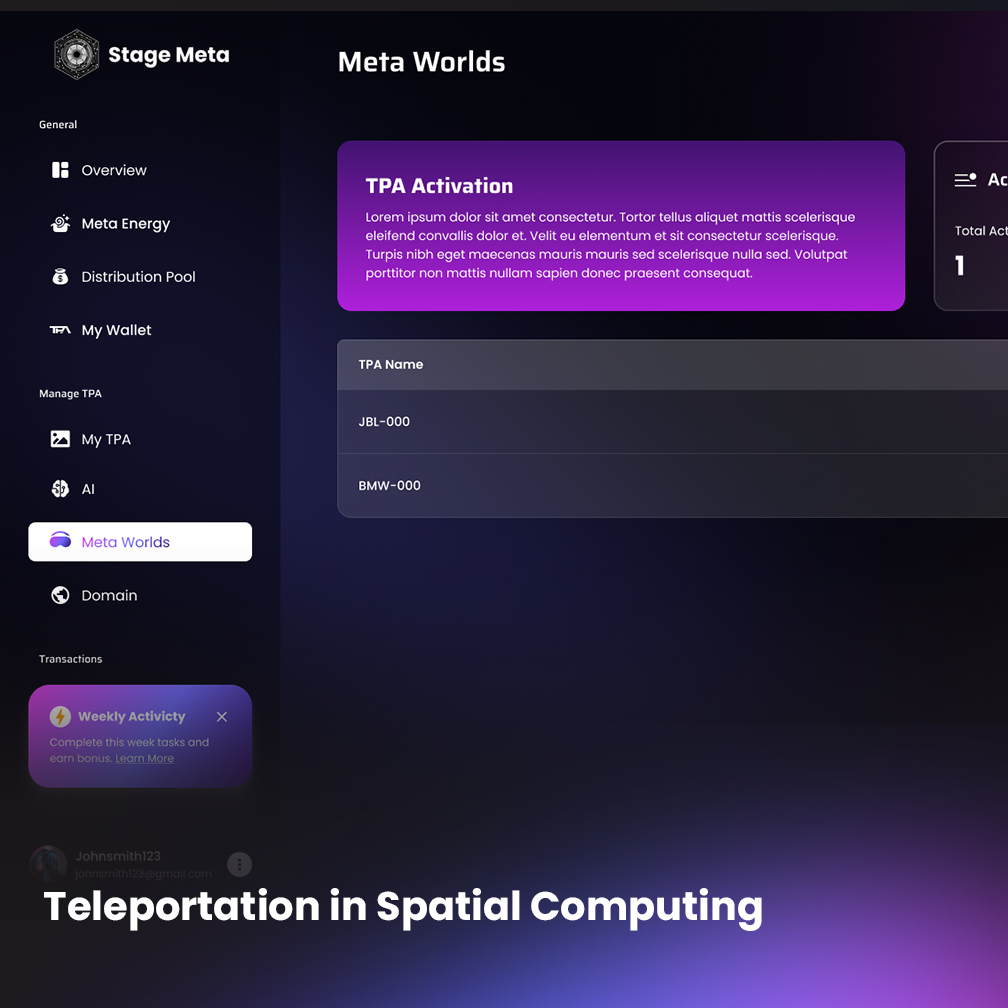Everything You Need to Know About Spatial Computing

Estimated reading time: 4 minutes
Have you ever wanted to know or explore a new world without leaving the comfort of your own home? Or maybe you’ve wished you could meet new people from all over the globe without having to leave your living room. If so, then spatial computing may be just what you’re looking for!
Spatial computing is a term used to describe online virtual worlds that use 3D computer graphics to simulate environments and objects. These virtual worlds can be used for gaming, social networking, education, training, and business purposes.
There are a number of different spatial computing realms currently in operation, each with its own unique features and offerings. But all spatial computing worlds provide a similar experience that allows users to socialize and explore a virtual world.
So, if you’re curious about what spatial computing has to offer, read on for everything you need to know!
How does Spatial Computing work?

As mentioned earlier, spatial computing realms are online virtual worlds that use 3D computer graphics to simulate environments and objects. These virtual worlds typically consist of a central server that hosts the environment and allows users to connect to it.
Users can interact with each other and with the environment using avatars, which are 3D representations of themselves. Avatars can be customized to look however the user wants, and can even be given special abilities or powers.
When users want to communicate with each other, they can do so via text, audio, or video. Spatial computing also allows for users to import 2D images and 3D models from outside sources.
Spatial computing is typically run on a closed loop, meaning that the environment and its contents are all created by the spatial computing’s developers. However, some spatial computing worlds do allow for user-generated content, giving users more creative control over their experience.
What can you do in Spatial Computing?
The possibilities are endless in spatial computing!
Users can socialize with each other, explore the virtual world, play games, shop, and much more.
Some spatial computing worlds even allow users to create their own content, giving them even more control over their experience. Spatial computing can be used for business purposes, such as training employees or holding meetings. It can also be used for educational purposes, such as teaching classes or providing demonstrations.
Spatial Computing is constantly evolving, so new and exciting things are always being added. Whatever you’re looking for, chances are you’ll be able to find it in spatial computing!
Why is Spatial Computing becoming more popular?

There are a number of reasons why spatial computing is becoming more popular. One reason is that they provide a unique and immersive experience that can’t be found anywhere else.
Another reason is that spatial computing is becoming more accessible to a wider audience. As technology improves, more and more people are able to join in on the fun!
Finally, spatial computing offers a great way for people to socialize and connect with others from all over the globe. With so many people now working remotely, spatial computing provides a much-needed sense of community and connection.
Are there any other things to keep in mind when using Spatial Computing?
There are a few things to keep in mind when using spatial computing. First, remember that not all spatial computing worlds are suitable for all audiences. Some may contain mature content that is not appropriate for children.
Second, be cautious about the personal information you share in spatial computing. While it is mostly safe, there is always a risk of encountering someone who is not well-intentioned. If you do encounter any problems, be sure to report it to the spatial computing staff so they can take action.
And finally, have fun! know spatial computing is a great place to explore and socialize, so make the most of it!
Spatial computing is a rapidly growing online virtual world that offers users a unique and immersive experience. You know there are a number of things to keep in mind when using spatial computing, but overall they are a safe and fun place to explore.
With so many people now working remotely, spatial computing provides a much-needed sense of community and connection.








